|
A popular Alaska self drive tour package for the independent traveler! Pick up your car in Anchorage and enjoy the scenic drive along Turnagain Arm to Seward. Attend the full day narrated wildlife and glacier cruise deep into Kenai Fjords National Park before returning the next day to Anchorage. The tour package includes rental car, a full day Kenai Fjords Cruise - tidewater glacier and wildlife viewing, delicious lunch buffet, your choice of hotel accommodation and individual program extension or combinations. |
KEP#02 Seward Self Drive Tour Package | Kenai Fjords Cruise
Tour Itinerary
Dates | Rates
Accommodation
Rental Car
Kenai Fjords National Park FAQ
|
Day
01 |
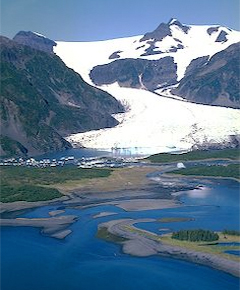 |
Anchorage - Seward Transfer to the car rental station in Anchorage to pick up the rental car of your choice. From Anchorage take the Seward Highway South and follow the North Shore of Turnagain Arm through the Chugach State Park with panoramic views of the Chugach and Kenai Mountain Range. Stopover at the Beluga Viewpoint and search for some Beluga or Orca Whales, Dall Sheep, Mountain Goats or Moose. Arrive in Seward - gateway to the 605.000 acre Kenai Fjords National Park and join our 8-hour Wildlife and Glacier Cruise, departing at 11:30 am. |
|
Day
02 |
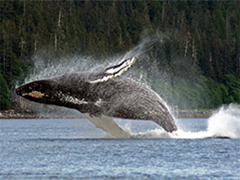 |
Seward - Anchorage Scenic Seward, flanked by rugged mountains to one side and sparkling Resurrection Bay on the other, has a way of luring visitors. Like many towns in Southcentral Alaska, Seward began a new era of history in 1964 after the Good Friday Earthquake caused fires and tidal waves that destroyed 90 percent of the town. You may spend some time at the Alaska SeaLife Center – the world’s first cold water marine search institute with wildlife rehabilitation and public education facilities, try your luck halibut or salmon fishing, attend a kayaking tour from Lowell Point or hike to Exit Glacier - the choice is yours. Depart Seward for a scenic trip back to Anchorage to return your car. Optional tour extensions on request. |
| Rates in US $ / per Person | Single | Double | Triple | Quad | Child | |
| May 10 - May 31 | $616.00 | $435.00 | $384.00 | $359.00 | $130.00 | |
|
|
||||||
| June 1 - August 31 | $901.00 | $577.00 | $479.00 | $430.00 | $130.00 | |
|
|
||||||
| September 1 - September 25 | $616.00 | $435.00 | $384.00 | $359.00 | $130.00 | |
| Rates in US $ / per Person | Single | Double | Triple | Quad | Child | |
| May 10 - May 31 | $776.00 | $515.00 | $438.00 | $399.00 | $130.00 | |
|
|
||||||
| June 1 - August 31 | $1078.00 | $666.00 | $538.00 | $474.00 | $130.00 | |
|
|
||||||
| September 1 - September 25 | $776.00 | $515.00 | $438.00 | $399.00 | $130.00 | |
| Individual Departures from May 10 - September 25 |
|
|
Superior Hotel Category (*** Hotels, Motels & Lodges) Superior Hotels offer a good amount of essential guest services and are located in downtown locations and/or in/near national park areas. All superior class hotel rooms are equipped with a private bathroom. Example larger hotel chains for superior class hotels are: Holiday Inn, Howard Johnson, Guesthouse Inn, Ramada Inn, High Country Inn, Aspen Hotel Group, Comfort Inn. As you might be aware, that these hotel chains are not available throughout Alaska. In such cases or/and when we feel that Alaskan owned hotels & lodges offer a better experience, we go with that choice. Cabins and Cottages also considered in this category to make your experience even more ‘Alaskan’. We ensure that all the Cabins & Cottages have a private bath to make your stay comfortable. 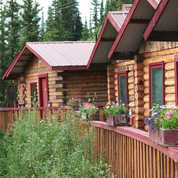 First Class Hotel Category (**** Hotels & Lodges) First Class hotels usually offer an additional amenities such as a restaurant, lounge, bar, fireplace seating, fitness room, swimming pool/hot tub, etc. All rooms in First Class hotels belong to a higher category and are always equipped with a private bathroom. Most hotels in this category are usually located in prime locations in prime downtown locations or in national parks. These include larger hotel chains such as: Marriott Hotels, Sheraton, Westmark Hotels, Princess Hotels and Lodges, Clarion Suites, Comfort Inn & Suite. The larger hotel chains are only available in Anchorage and Fairbanks. If a major hotel chain is not available, we prefer to book local premium hotels/deluxe cabins or cottages for our clients. Please note that premium accommodations may not be available in small towns; in such cases we will book the best available accommodation. 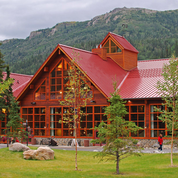 |
Rental CarWe’ve put together a selection of rental car categories designed specifically with Alaska travel in mind. Whether you’re planning a short getaway or a longer adventure, traveling solo or with a group, or working within a specific budget, you’ll find options that balance comfort, space, and practicality for the unique conditions of Alaska’s roads. From midsize cars for easy city driving to spacious SUVs and vans ideal for longer scenic routes or family trips, there’s a category for every type of journey. Not sure which vehicle is right for your plans? Simply reach out to us—we’ll be happy to recommend the rental car category that best matches your itinerary, group size, and travel style. Here are the car rental categories we offer: Mid Size Car (included - part of the package / additional day $150) Generally, midsize cars measure between 180 to 195 inches in length but can vary depending on specific models. Mid-size cars, also commonly known as intermediate or standard cars, are four-door sedans that are more spacious than compact cars while still being fuel-efficient. They can fit 3 or sometimes 4 bags depending on the model. They feature more interior space compared to compact cars and offer comfortable seating for four to five passengers. 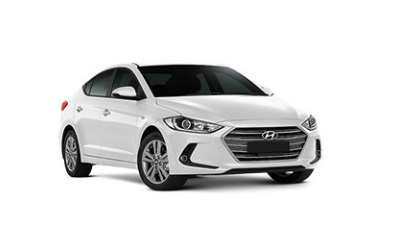 Full Size Car (upgrade $12 per day / additional day $160) Full Size cars are what many people would describe as large cars. A full-size car typically refers to a vehicle that offers more extensive interior space, comfort, and power compared to smaller vehicles such as compact or midsize cars. These cars usually have larger dimensions, including length, width, and height. They commonly feature roomy interiors with ample seating for five or more passengers along with expanded trunk capacity for luggage or cargo. Historically, full-size cars were synonymous with large sedans boasting V8 engines and body-on-frame construction. While this has changed over time due to evolving industry trends and technological advancements, what remains consistent is the emphasis on spaciousness, comfort, and performance these vehicles provide. 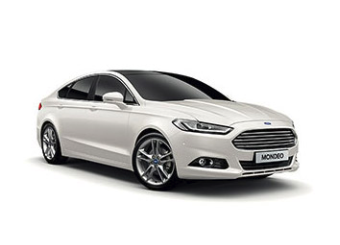 Standard Size SUV (upgrade $88 per day / additional day $240) SUVs (short for sport or suburban utility vehicles) are good-sized vehicles with a rugged look, set higher off the road than normal cars. In an SUV, the description of “standard” generally refers to the size of the SUV. The standard SUV is larger than the intermediate or compact versions. These full-size models are more powerful, like a truck, and they are usually more equipped to handle a wider variety of terrains and road conditions as well. In addition to being powerful, their size also means that they typically have more seating capacity than the smaller SUVs. They can seat more passengers and have more cargo space for transporting luggage and equipment. 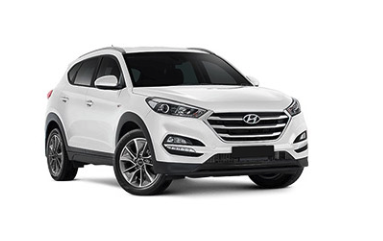 Standard Elite SUV (upgrade $105 per day / additional day $255) Perfect for families, groups, and adventurous travelers, the Standard Elite SUV delivers a spacious and comfortable ride with room for up to 7 passengers. These versatile SUVs combine strong performance with practical features, including automatic transmission and air conditioning, making them ideal for both city streets and Alaska’s rugged landscapes. Models in this category offer generous cargo space for luggage, gear, or supplies, ensuring every trip is smooth and stress-free. With their reliable handling, powerful engines, and family-friendly interiors, Standard Elite SUVs are built for travelers who want comfort, convenience, and confidence on the road. Book from this vehicle group to enjoy a safe, capable, and spacious SUV designed to make every journey a memorable adventure. 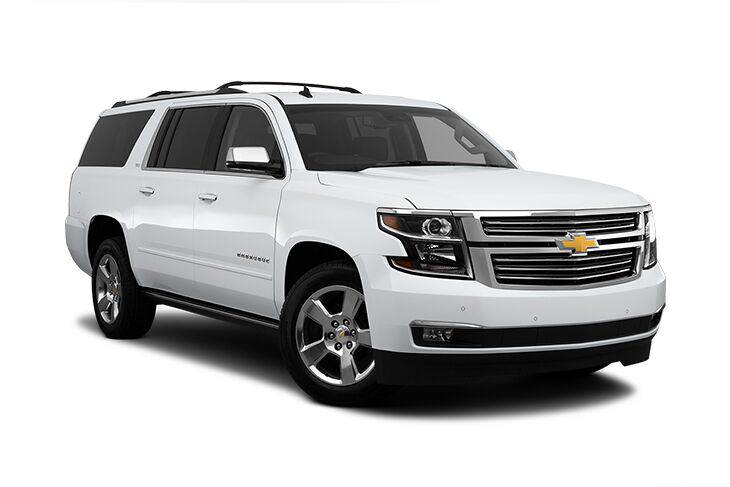 Mini Van (upgrade $125 per day / additional day $275) This roomy mini van is your ticket to family adventures and travel memories on your next rental. More spacious than a full-size car, and with better gas mileage than an SUV, a minivan is a 7-passenger van that provides unbeatable comfort and convenience. By providing leg and luggage room, configurable seating and storage layouts, easy in-and-out, competitive fuel efficiency, and high-performance drive—all without sacrificing style—minivans accommodate every kind of group outing, from lengthy family vacations to quick business trips. Did somebody say “road trip”? 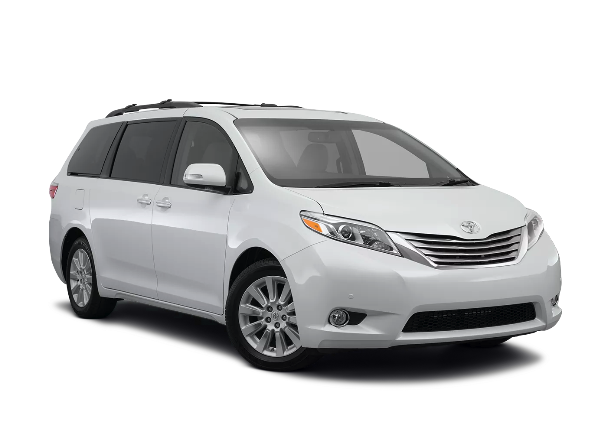 11 Passenger Van (upgrade $250 per day / additional day $400) Choose a 11-person passenger van so that no one gets left behind on your road trip or vacation. Instead of trying to coordinate a car pool; save time, resources, and gas money by putting everyone together in one clean and comfortable van. You'll find each passenger has much more leg room. Sample Models: Chevrolet Express, Ford Transit or similar Sample Features: 3 Doors –10 to 11 Passengers- 6 Large Suitcases - Air-conditioning - Automatic Transmission 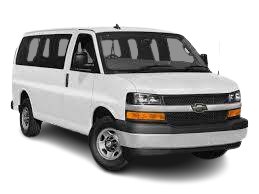 |
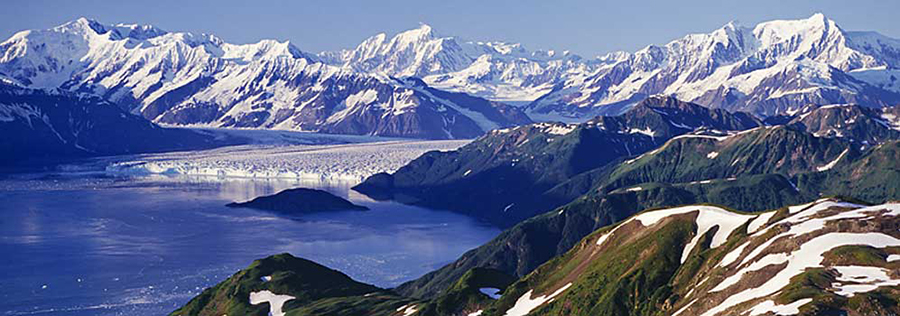 |
|||||||||||||||||||||||||||||||||||||||
Kenai Fjords National Park - FAQ
|
|||||||||||||||||||||||||||||||||||||||
